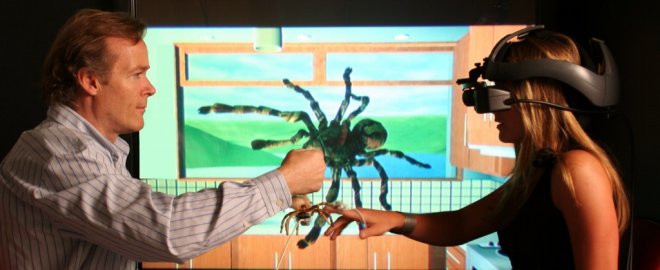
Virtual Reality (VR) kits have long been used to watch immersive movies and games while YouTube's new VR offering brings a better experience than the monotonous video surfing habits. But what if VR kits could be used for more innovative ways than just giving us a better experience? There are several tech firms which are out there working to make virtual reality an effective tool to fight phobias, anxiety and addictions. This is called the virtual reality exposure therapy.
The logic behind such an attempt is that if someone is suffering from a phobia, he/she can slowly be introduced to the cause of fear in a regulated environment, where that person may not suffer any actual harm. The chances are, they may gradually be able to overcome their phobias and finally become phobia free. So, the tech companies are working on the development of several apps, which can treat phobias with the help of VR technology.
ALSO READ: Exclusive: Why can't we stream full Super Bowl in VR – IEEE expert explains game-changing tech
This is not applicable for only major paranoia inducing phobias, but also for regular occurrences that we often find a tad bit difficult to cope with. Several people tend to have a varying degree of vertigo and although, it is not a huge concern to seek remedial help but it does make looking down from even a three storied building pretty nauseating. With the help of these apps they can make steady progress to ward off this sickening feeling and will not have to physically go to an elevated place as a part of the therapy.
TeleSoftas, a Lithuanian firm, believes that this method of exposure therapy is beneficial in nature and has recently managed to get EU funding, which they are going to use to finance the VR augmentation into mental health apps in partnership with medical intelligentsia. Psious, a Spanish startup also believes that exposure theory could actually be empowering and is working on it.









